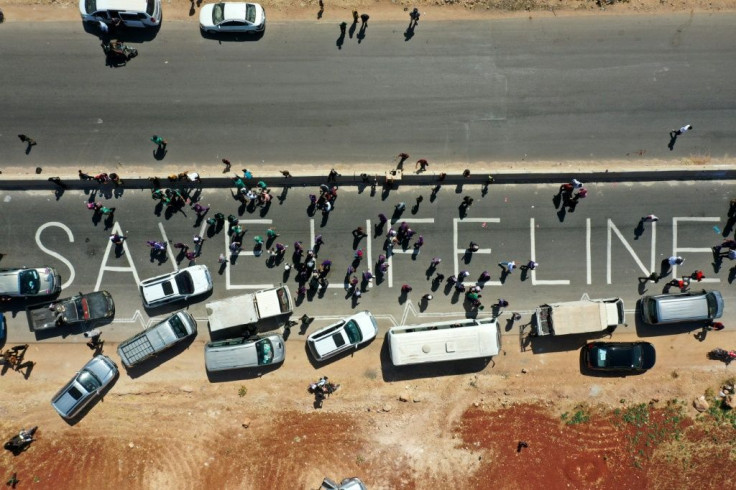UN Security Council Extends Cross-border Aid Operation For Syria
The UN Security Council on Friday unanimously approved an extension of activity at the only border crossing through which humanitarian aid reaches a rebel-held part of Syria.
This stemmed from a compromise reached by the United States and Russia, both of which hailed what they called a rare instance of cooperation between them.
The UN's cross-border aid authorization for northwest Syria, due to expire Saturday, will now be prolonged by six months, with a possible six month renewal.
Humanitarian organizations have been pleading for months for an extension of the UN authorization for the crossing at Bab al-Hawa.
The approved text is an amalgam of two drafts -- one proposed by Norway and Ireland and another by Russia.
The United States had pressed for the border crossing from Turkey to be renewed for a full year, and sees this resolution as doing just that.
But Russia calls it only a six-month extension, with a possible six month addition depending on a report from the UN secretary general at the end of the year.
The text is the result of a compromise between the United States and Russia in last-minute talks that were broadened to bring in the other three permanent members of the council -- Britain, China and France.
It extends the authorization for six months, with an addition of six more, "subject to the issuance of the Secretary General's substantive report, with particular focus on transparency in operations, and progress on cross-line access in meeting humanitarian needs."
Some three million people live in jihadist-dominated northwest Syria, more than half displaced by the country's decade-long conflict.

For the past year, international organizations have been able to bring in medicine, food, blankets and Covid-19 vaccines through Bab al-Hawa -- the only crossing for aid into the region that bypasses Damascus.
Russia, which wields veto power at the council, is a staunch ally of the Damascus regime.
Russia had preferred to see the aid delivered across front lines from Damascus, arguing the existing crossing is used to supply arms to rebel fighters.
US President Joe Biden, meeting with his Russian counterpart Vladimir Putin recently in Geneva, pressed for an extension of the border crossing authorization.
This issue was seen as a test for possible cooperation between the US under the new Biden administration and Russia.
In a call between Biden and Putin on Friday, both "commended the joint work of their respective teams following the US-Russia Summit that led to the unanimous renewal" of the cross-border aid mechanism, said a White House statement.
The Russian ambassador to the UN, Vassily Nebenzia, called the deal reached at the UN "historic."
"For the first time, Russia and the United States not only managed to reach an agreement, but they also presented a joint text supported by all the council members," he said.
"We hope this scenario represents a turning point that will benefit not just Syria, but the entire Middle East region and the world," said Nebenzia.
The US ambassador, Linda Thomas-Greenfield, also hailed the compromise.
"It's important that the United States and Russia were able to come together on a humanitarian initiative that serves the interests of the Syrian people," said the ambassador, who earlier in the negotiations had pressed for three border crossing points to be open.
"And it's an important moment for the UN and the Security Council, which today showed we can do more than just talk. We can work together to find solutions and deliver actions," said Thomas-Greenfield.
© Copyright AFP 2024. All rights reserved.




















